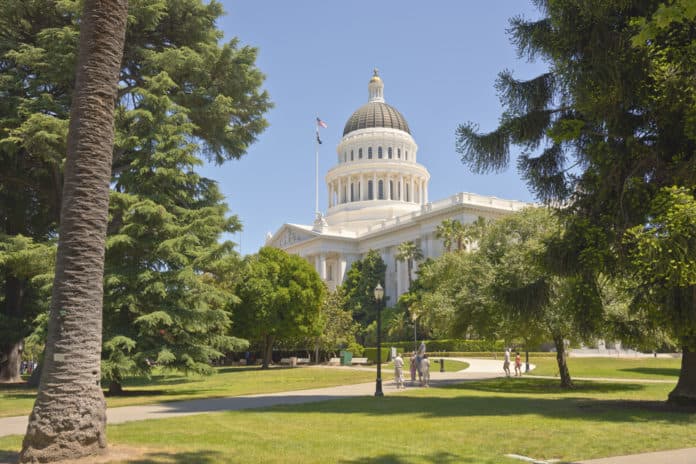SACRAMENTO – California Governor Gavin Newsom in July authorized fines of up to $30,000 a day to be levied against cannabis businesses found to be in violation of California’s legal cannabis regulations.
“The enforcement provisions included in the trailer bills provide the state’s three main licensing agencies with an additional tool to aid in enforcement,” Jesse Melgar, a spokesman for the governor told the Los Angeles Times. “In the instances where individuals refuse to become licensed or cease unregulated activity, it seeks to hold those individuals accountable by creating meaningful financial penalties for unregulated activity.”
The action may be in response to a state Finance Department performance audit that showed the Bureau of Cannabis Control has struggled to stem the tide of illegal cannabis sales in the state since recreational cannabis was made legal on January 1, 2018.
In 2018, the bureau worked with local law enforcement agencies to serve six search warrants on illegal pot shops in the state. So far, in 2019, there have been nineteen search warrants served on illegal shops, netting 2,500 pounds of illegal cannabis products at estimated retail value of $16.5 million.
Though the number of warrants has tripled, cannabis industry advocates have pointed out that much more still needs to be done, to begin to reduce a well-established black market and illegal vendors in California.
The California Cannabis Industry Association told the Los Angeles Times that warrant enforcement “is severely inadequate.” CCIA Executive Director Lindsay Robinson was also paraphrased, saying many illegal shops are easy to find because they advertise publicly.
Media reports follow findings in the audit that paint a picture of continued challenges and lack of resources for regulating the state’s legal cannabis industry, in a consumer market long-storied to be the largest in the U.S.
Released in early July, the audit found two-thirds of 219 positions authorized for the Bureau of Cannabis Control remain unfilled, and that lack of staffing is affecting the bureau’s ability to serve warrants on illegal businesses. Out of sixty-eight authorized staff positions in enforcement, the BCC said less than half are filled. There is only one BCC field office in the state, which also creates difficulties for standard regulatory functions including inspection, processing complaints, and investigations.
The audit did not focus on the other two state agencies involved in cannabis regulation—the Department of Food and Agriculture, which oversees cultivation, and the Public Health Department, which regulates manufacturers. It did, however, recommend improving communications between all agencies involved in cannabis regulation.
A lack of funding for the BCC was also noted in the audit. Expectations for license fees of $200 million had been anticipated by mid-2019; however, by January, only $2 million had been collected.
In Colorado, which legalized recreational use in 2014, total cannabis tax revenue passed the $1 billion mark in June. A similar tax revenue boon has not materialized in California, which collected $345 million in tax revenue in 2018—considerably less than the $1 billion some had hoped.
Associated Press said that in a lengthy response from the state’s Department of Consumer Affairs, which oversees the BCC, the department noted the one-year long period of time officials had to build the bureau, as well as regulatory standards and policies placed the bureau under considerable pressure and limitations.
Lori Ajax, head of the BCC, was quoted by Associated Press, and said that conditions had been “challenging.” The results of the audit, Ajax said, would inform efforts and “strengthen” operations going forward.












